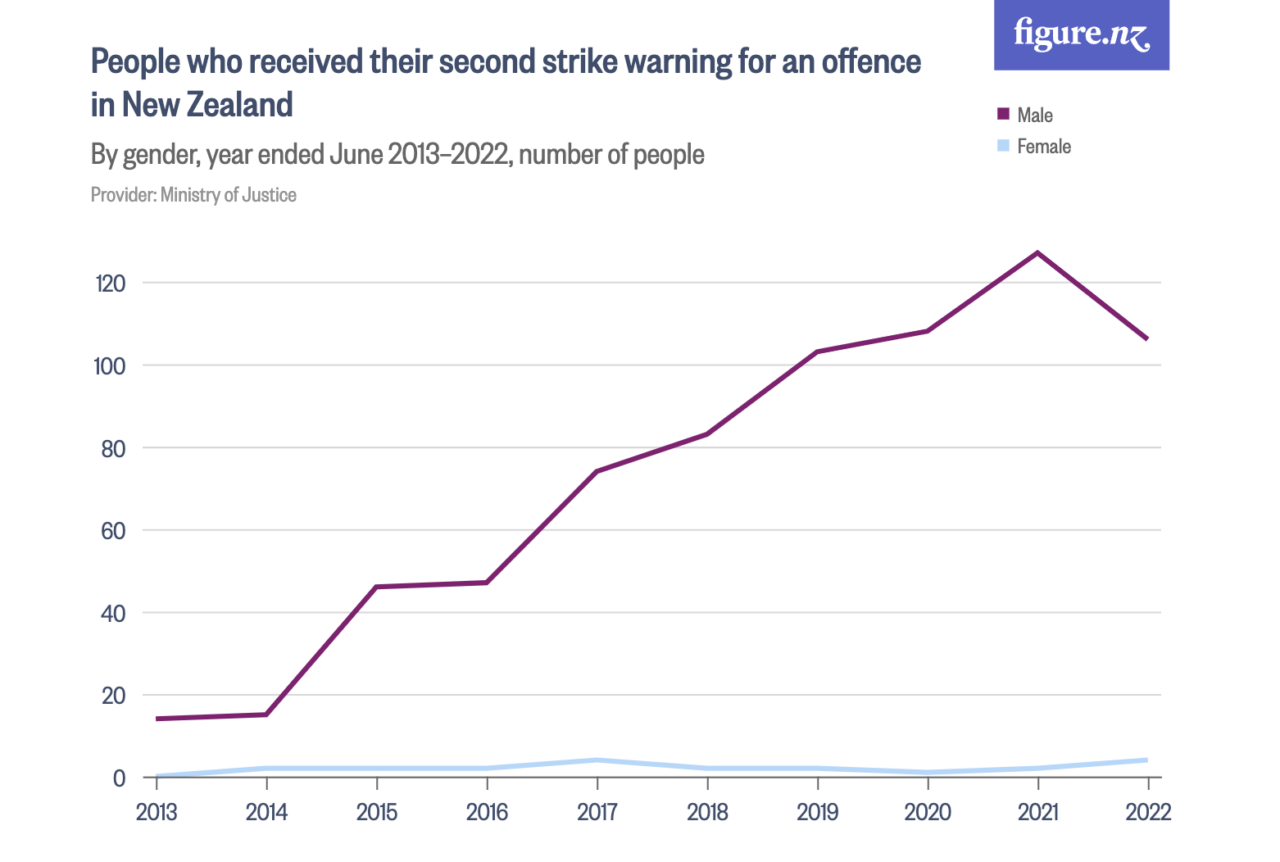Tirohanga Whānui | Overview
The New Zealand Council of Christian Social Services (NZCCSS) welcomes the opportunity to provide feedback on the Sentencing (Reinstating Three Strikes) Amendment Bill. Although we support the kaupapa to reduce re-offending, we strongly feel that the reinstatement of this Bill will not have the desired result in a reduction in re-offending.
Our main points are:
Item One
There is no evidence to suggest that reinstatement of this Bill, even with the proposed amendments, will result in a reduction in re-offending.
Item Two
The amendments to the Bill do not consider the disproportionate impact on Māori in the previous rendition of the Act or work to reduce this inequity.
Item Three
Re-instatement of the Bill limits the judiciaries’ ability to tailor sentencing to individual circumstances.
Taunakitanga | Recommendations
We raise the following points and recommendation for consideration:
Item One There is no evidence to suggest that reinstatement of this Bill, even with the proposed amendments, will lead to a reduction in re-offending.
There is no evidence that the previous version of the Bill had a meaningful impact on crime rates. Further, there was no notable reduction in rates of re-offending. The number of people who received a second-strike warning continued to rise under the previous rendition of the Bill:

Figure 1. (FigureNZ, 2022)
Importantly it must be noted that experts consulted by the government including, Tāhū o te Ture| Ministry of Justice, are not in support of the reintroduction of the amended Bill. With the official recommendation from Tāhū o te Ture to maintain the status quo and not reinstate the amended Bill:
“The Ministry of Justice, based on its previous analysis, recommends the status quo” (Tāhū o te Ture – Ministry of Justice, 2024a)
Although we support the kaupapa to reduce the incidence of violent crimes in Aotearoa, this Bill focusses on punitive measures rather than working to rehabilitate offenders and prevent future offending, an approach which has been demonstrated to be more effective (Lipsey & Cullen, 2017; Bandyopadhyay, March 2020). NZCCSS supports the use of evidence-based research to create policies that are more likely to have a significant impact on reducing re-offending.
Research suggests that the underlying drivers of crime in Aotearoa include mental health or substance abuse disorders with 91% of prisoners experiencing one or both of these (Ara Poutama Aotearoa – Department of Corrections, 2017). As such we strongly believe that resources would be better aimed at investigating the underlying determinants of criminal behaviour and how these can be targeted to provide successful rehabilitation for those exiting the prison system and hopefully reduce the initial incidence of crime.
Recommendation 1: This government should prioritise evidence-based legislative and policy efforts directed towards reducing drivers of crime, with a strong focus on programmes that have been proven successful in reducing rates of reoffending.
Item Two The amendments to the Bill do not consider the disproportionate impact on Māori in the previous rendition of the Bill or work to reduce this inequity.
Māori were disproportionately represented in the number of people receiving strikes under the previous rendition of the Bill, representing 50% of those who received a first strike, 63% of those who received a second strike and 82% of those who received a third strike (Tāhū o te Ture – Ministry of Justice, 2021). Despite the Bill having amendments in an attempt to make it fairer, it appears no action has been taken to consult Māori regarding this inequity:
No Māori groups or partners have been consulted or engaged on the policy underlying this Bill due to time constraints. Despite strong Māori interests, consultation has not been conducted as the introduction of the Bill has occurred at pace, because the Bill is a priority in the Coalition’s quarterly action plan.
The lack of consultation has not allowed for the development of alternatives which may better mitigate impacts of the three strikes regime on Māori. Aspects of the policy design, such as the qualifying threshold and manifestly unjust exceptions for all mandatory elements, may help mitigate impacts on Māori (Tāhū o te Ture – Ministry of Justice, 2024b, p7).
Under the current criminal justice settings, Māori are still disproportionately represented. It could therefore be argued that the Crown has failed to recognise its obligations to protect the rights and privileges of Māori, thus potentially being inconsistent with the Crown’s obligations of Article Three of the Treaty (Tāhū o te Ture – Ministry of Justice, June 2024a, p21).
Consultation is a requirement to ensure that the government have met their obligations to Te Tiriti.
Recommendation 2: Lack of consultation with Māori regarding this Bill is a breach of the government’s obligation to Te Tiriti. Consultation be undertaken before any further action is taken.
Item Three: Re-instatement of the Bill limits the judiciaries’ ability to tailor sentencing to individual circumstances
In many instances the sentences given under this Bill would already have been possible under the discretion of the judiciary. Re-instatement of the Bill ties the hands of judges and sets out additional limitations on them to tailor sentencing potentially resulting in unfairly harsh sentencing. The amendment to the Bill in regard to only covering sentences of 24 months of more may also result in judges altering sentencing in some instances if they feel a strike would or would not be appropriate, further impeding the impartiality of sentencing.
The Ministry’s analysis of the 2010 regime found that:
- it was resulting in severely disproportionate sentences;
- there is limited evidence that it reduced serious crime;
- judicial discretion is preferable to mandatory sentences because it allows for the circumstances of each case to be taken into account by the sentencing judge; and
- the standard sentencing options enable judges to impose tough sentences of the kind required by three strikes when it is appropriate to do so. (Tāhū o te Ture – Ministry of Justice, June 2024a, p1).
Recommendation 3: The judiciary should have the independence to apply existing law and tailor sentencing to circumstance. The reinstatement of this Bill will limit the judiciary’s ability to do this effectively.
Tohutoro kua tohua | Selected references
Ara Poutama Aotearoa – Department of Corrections. (2017). Change Lives Shape Futures – Investing in better mental health for offenders. https://www.corrections.govt.nz/resources/strategic_reports/investing_in_better_mental_health_for_offenders#2
Bandyopadhyay, S. (March 2020). Why rehabilitation – not harsher prison sentences – makes economic sense. The Conversation. https://theconversation.com/why-rehabilitation-not-harsher-prison-sentences-makes-economic-sense-132213
FigureNZ. (2022). People who received their second strike warning for an offence in New Zealand. Sourced from Tāhū o te Ture – Ministry of Justice via Figure.NZ under CC by 4.0. https://figure.nz/chart/TBkAIv3JdECIOIl0
Lipsey, M. W., & Cullen, F. T. (2007). The Effectiveness of Correctional Rehabilitation: A Review of Systematic Reviews. Annual Review of Law and Social Science, 3(1), 297-320. DOI: 10.1146/annurev.lawsocsci.3.081806.112833
Tāhū o te Ture – Ministry of Justice. (June 2024a). Regulatory Impact Statement: Reinstating three strikes sentencing law. https://www.justice.govt.nz/assets/Documents/Publications/RIS-Reinstating-three-strikes-sentencing-law-proactively-released.pdf
Tāhū o te Ture – Ministry of Justice. (June 2024b). Departmental Disclosure Statement; Sentencing (Reinstating Three Strikes) Amendment Bill. https://disclosure.legislation.govt.nz/assets/disclosures/bill_government_2024_65.pdf
Ingoa whakapā | Contact Names
Nikki Hurst
Dr. Katie Schraders
